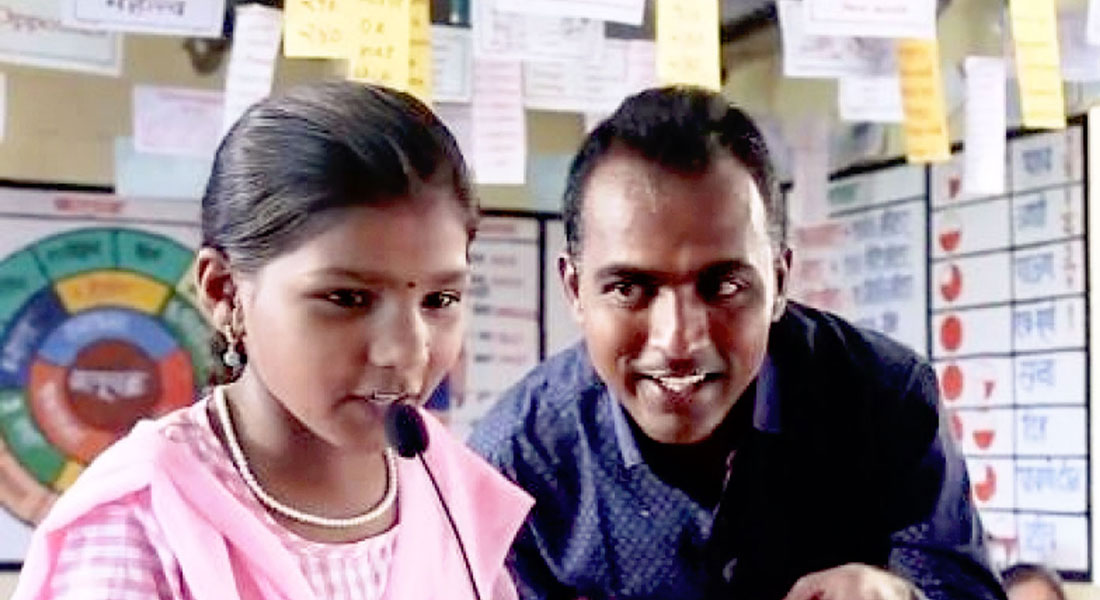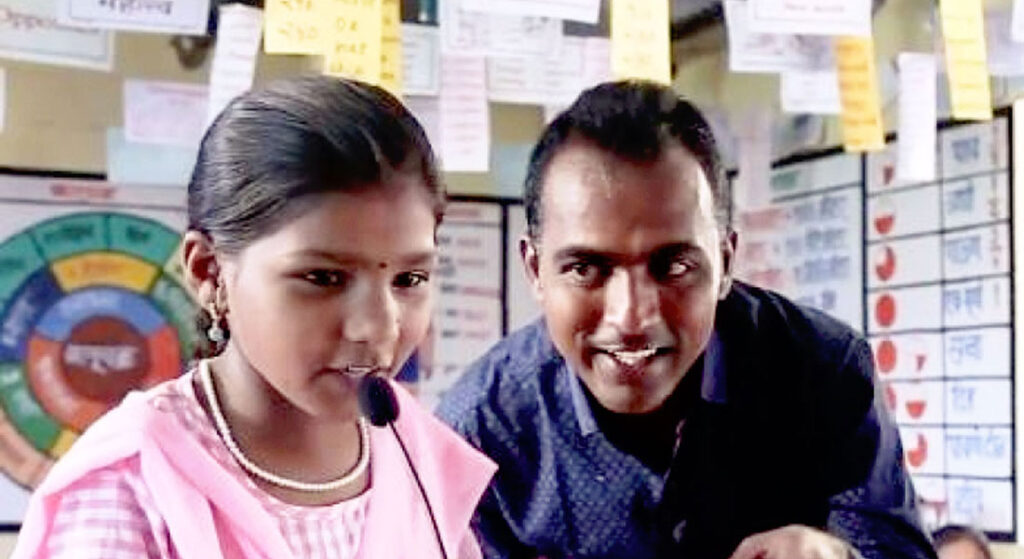Ranjit Sinh Disale, a teacher at the Zilla Parishad Primary School in Paritewadi village, Solapur, Maharashtra, won $1 million as Global Teacher Prize 2020 for promoting girls’ education and introducing a QR-coded textbook revolution in the country. The annual award is instituted by the Varkey Foundation, UK, to honour exceptional teachers for outstanding contribution to the profession. “I have announced that I will share half of the prize money with my nine fellow finalists. It can help scale up their work too. Teaching is all about giving, sharing our knowledge and making people competent,” he said, speaking at the virtual Rotary institute at the RILM session.

In 2009 when Disale arrived at his school, which was a dilapidated building sandwiched between a cattle shed and a storehouse, his immediate task was to ensure that textbooks were available to his pupils in their local language. “I translated the textbooks in Marathi and also embedded them with QR codes to give students access to poems, video lectures and assignments.” His idea was adopted by the NCERT in Maharashtra. “Children unable to visit schools can still learn their lessons from home at their own pace.” He proudly says that 90 per cent students in his school have achieved excellent grades. Without leaving their classrooms his students have travelled to 140 countries ‘virtually’. “They know the culture and language of the people there. It has helped to broaden their vision. I encourage them to call themselves ‘global citizens.’ After interacting with Japanese children, my students understand how to respond to earthquakes because it is a common phenomenon in Japan,” he said, adding that he plans to allocate 20 per cent of his prize money for his ‘Let’s cross the borders’ project that aims to build peace among students and young people from conflict-torn countries such as Pakistan, Palestine, Israel, Iran, Iraq and North Korea. He also wants to allocate another 30 per cent of the prize money to the ‘Teachers’ innovation fund’ that he plans to set up.
After interacting vitually with Japanese children, my students understand how to respond to earthquakes, because it is a common phenomenon in Japan.
The impact of Disale’s interventions is that there are now no teenage marriages in the village and the school has 100 per cent attendance of girls.
Rotary India Literacy Mission
RIDE Mahesh Kotbagi, co-chair of RILM, said that about 300 Rotary clubs with a participation of one lakh Rotarians from across the country have been working on RILM’s TEACH programmes since its inception in 2014. With the onset of Covid, after which schools had to be shut down, “Rotarians such as Swati Herkal have trained 80,000 teachers in western India in simple, smart online teaching methods and it is being scaled up to benefit teachers nationwide.” The e-shiksha project has helped install audio-visual curriculum in 30,000 schools. The content is approved by the government and is being telecast nationwide and in its educational app, Diksha. “It is expected to help around 15 crore children across India this year.”
RILM is involving school students to mentor adult illiterates in its adult literacy programme. “At least 80,000 adults are functionally literate, thanks to this initiative,” he said. Programmes such as Swabhimaan, Project Dignity and Saksham Bharat are making a great impact in enhancing livelihood of women and youngsters through various skill development programmes by involving Rotary clubs. More than 1,000 single women have found suitable vocations through Project Dignity.
Thanks to Disale’s interventions, there are now no teenage marriages in the village and the school has 100 per cent attendance of girls.
Through Project Saksham Bharat RILM encourages Rotary clubs to enroll youth in any of the branches of Apollo Medskills in their region. The course fee that has been subsidised at ₹4,400 per student will be sponsored by the clubs. Placements are assured for the trainees on completion of
the course.
Around 3,000 Happy Schools and 3,500 libraries have been facilitated through RILM across the country, added Kotbagi.







